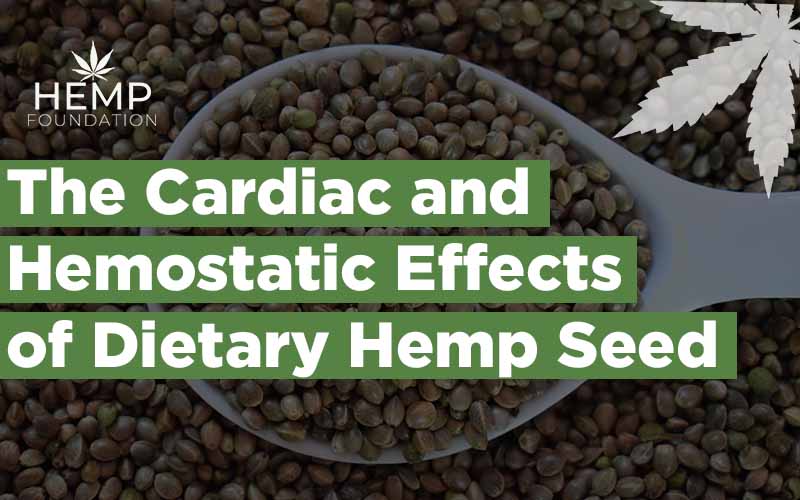How Hemp Can Impact The Oil Industry
[vc_row][vc_column][vc_column_text]Hemp was the original contender against the oil industry back in the 19th century. High-quality hemp paper was used to write The Declaration of Independence and even the earliest American flags were made out of hemp fibers. Hemp has always been the answer to a more sustainable and eco-friendly existence.
America’s impact on the environment gets heavier by the minute and the solution is legal and easily available. The U.S. Energy Information Administration released the amount of carbon dioxide emissions by fuel in America. The stats show a total of 2,370 metric tons of emissions from petroleum and other liquid fuels in 2018.
Hemp has been around for a long time and especially in America, it started to make a stronghold in the country but was soon turned illegal. In 1916, U.S. Department of Agriculture found hemp could produce four times the pulp for paper compared to the lumber sources.
Then in 1937, marijuana and its negative physical and psychological effects pushed Congress to pass the Marihuana Tax Act. The law levied hefty taxes on every strain of cannabis including hemp.
Finally, in 2004, a landmark federal court decision sided with Hemp Industries Association standing against the Drug Enforcement Administration. This verdict led to the first American hemp permits issued in over 50 years in 2007.[/vc_column_text][vc_column_text]
Hemp As A Biofuel Can Replace Fossil Fuels
In the last two centuries, mankind has relied on petroleum oil as the premier source of energy. This has caused an increase in demand with the rapid expansion of civilization. Economists have stated that we are at the peak of global oil production and the prices will only increase until the supply diminishes. However, toll petroleum oil takes on the environment will only continue to cause substantial problems.
Hemp is a multipurpose plant that can be used for fiber and even diesel fuel. The seed of the hemp plant is pressed to create fuel that has 11% oxygen in weight and no sulfur. This fuel is as biodegradable as sugar and less toxic than salt. The transportation of hemp fuel is easier as its flash point is at 300 degrees while petroleum is at 125 degrees.
To get petroleum as the final product requires a tedious process whereas hemp fuel requires no processing and can be filled in the diesel tank directly. Hemp fuel is a naturally renewable resource allowing it to extend the lifespan of diesel engines as it has higher lubricants than petroleum.[/vc_column_text][tm_image align=”center” image=”7634″][vc_column_text]
Source:truedemocracyparty.net
Understanding Hemp As A Renewable Source of Energy
Hemp is a weed and grows abundantly with no pesticides and very less water. Not only is it biodegradable but it also takes up less space. Yet it yields more pulp per acre while compared to trees. The Parliament of Australia reviewed that one hectare of the hemp crop can sequester 22 tonnes of CO2 and exude more oxygen than trees.[/vc_column_text][tm_image align=”center” image=”7636″][vc_column_text]
Source:timesofcbd.com
Every part of the hemp plant has useful elements that contribute to the welfare of our civilized lives. The interior woody core of the hemp plant is used for paper, while the outer stalk can be used for textiles and rope. The seeds are the jewel of the plant as they are rich in protein, omega-3 fats, and fiber. The oil made out of the seeds is not just used as fuel but for paints, cooking, plastic, and other adhesives.
Hemp grows 4 meters in just 100 days, making it one of the fastest CO2 to biomass conversions. The natural carbon absorption by hemp can be effectively and accurately calculated, unlike others. This is simply done by examining the carbon content in the fibers of the hemp stem.
Hemp is a versatile plant that is adaptable to any soil type or weather conditions. Growing hemp protects and binds the soil structure as it requires no chemical inputs. The plant has also been found to clean toxins in the soil. The hemp plant uses Phytoremediation is a bioremediation process that removes or destroys contaminants in the soil or groundwater.
In Germany 1994, the results of hemp grown on soil contaminated by heavy metals were recorded in Karus and Leson. It showed the crop remained free from any contamination in the soil. This prolifically grown plant is organic and a regenerative agricultural crop. Anything that can be made with cotton, soy or corn can be made with hemp with the least impact to this planet.[/vc_column_text][vc_column_text]
Hemp Is More Reliable Than Oil
Mining for oil is a dangerous profession and if there is a safer method to gain resources why not make the most of it? Hemp is obviously an easier and much safer way to produce biofuel for our everyday use. The biofuel extracted from hemp seeds burns cleaner without contaminating the air unlike petrol or any other biofuel.
At present, the oil industry is the most harmful to our environment. A liquid mixture of hydrocarbons present in certain rocks is extracted and refined to make fuels. Not only do fuels cause air and water pollution but fracking (the process of mining) can harm the soil and even cause earthquakes due to the high pressure of the drilling.
While the seed is used to make biodiesel, the fibers of the stalk can be used to produce ethanol. This fuel is primarily made from wheat-based crops like corn and barley. Hemp stalk can be turned into ethanol through a number of fermentation processes.
The final product is high-quality ethanol even though hemp grows in low-quality conditions, unlike wheat or corn. This version of ethanol also shares the advantages of usability as biodiesel and even transportation.
Hemp biofuel is the only alternative fuel to complete EPA Tier I Health Effects Testing under the Clean Air Act in the U.S. It is also capable of producing the most biomass compared to any other crop. A total of 10 tonnes of biomass is produced every four months per acre. This crop can help farmers become more self-sufficient in terms of energy.
Farmers can use hemp as a rotational crop with their food cultivation to create biofuel to run their machinery. This will create a sustainable and eco-friendly loop among farmers. The farmers can use the rest of the crop for paper and fiber ensuring a fruitful yield.[/vc_column_text][vc_column_text]
Conclusion
As climate change becomes a growing problem in this world, sustainable resources are becoming a mandate by law. Hemp is a crop that will provide a renewable source of clean-burning energy. This plant is easier and faster to grow and leaves a significantly smaller carbon footprint that other biofuels.
Hemp fuel is more reliable than fossil fuels and other biofuels. The oil industry will fail to sustain as the hemp industry takes root. The advantages of this crop is obvious and the harms caused by the oil industry are clearly problematic.
A switch from harmful fuels to hemp is beneficial for our livelihood. Embracing hemp and its uses are bound to help us replenish the earth from all the damage fossil fuels have caused.[/vc_column_text][/vc_column][/vc_row]




